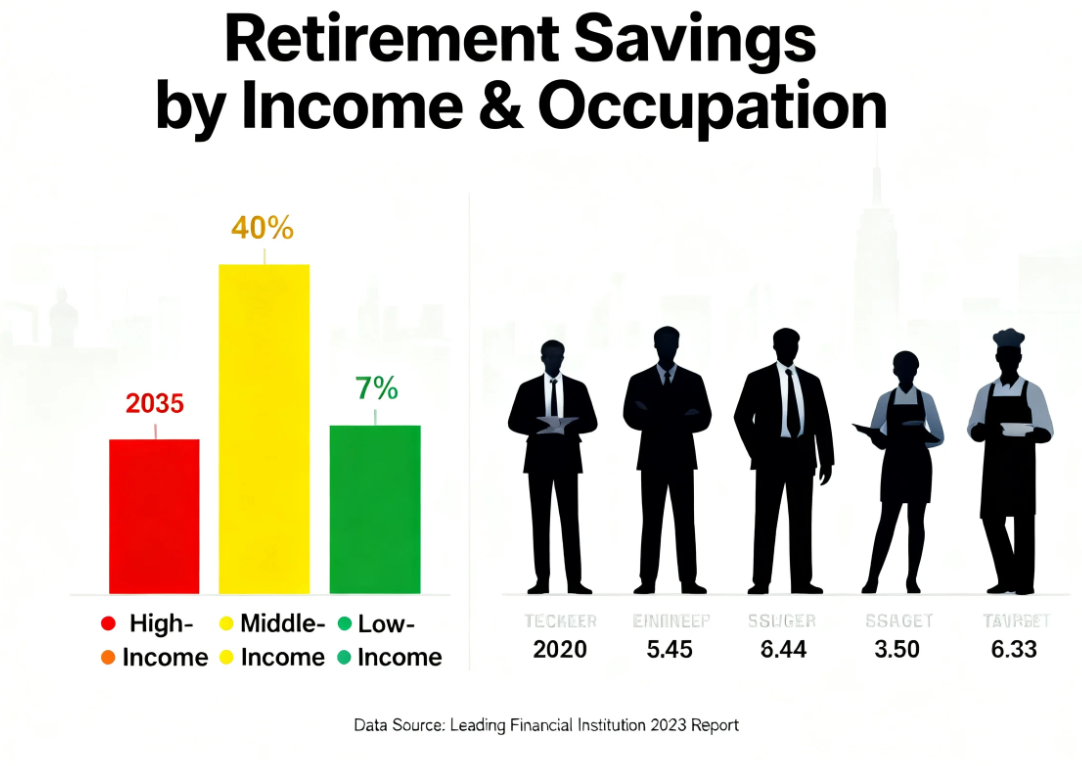Retiring early is a fantasy many Americans share. The idea of stepping out of the workforce by your late 50s and enjoying decades of freedom sounds idyllic. But experts caution that it’s often far easier said than done.
When asked what the “ideal” retirement age should be, surveyed Americans gave an average answer of 58, according to a June poll by Empower of 1,001 adults. That’s years earlier than reality: as of 2024, the average retirement age is 64 for men and 62 for women, data from the Center for Retirement Research at Boston College shows.
And even then, many workers don’t retire exactly when they plan. In fact, 58% of Americans leave the workforce earlier than expected, according to a 2024 study by the Transamerica Center for Retirement Studies. For most, it wasn’t by choice: 46% pointed to health challenges, 43% cited job-related issues, and 20% mentioned family responsibilities. Only 21% said they retired early because they were financially secure.

The Hidden Costs of Early Retirement
For those aiming to quit work at 58, the math can get daunting. “You’re potentially looking at 30 to 40 years of not working,” said Carolyn McClanahan, a certified financial planner and founder of Life Planning Partners in Jacksonville, Florida. With Americans living longer, that translates to decades of expenses without employment income.
“You may end up coming up short or not having enough money if you quit work too early,” McClanahan warned. Recessions, inflation, or unexpected medical costs can erode even well-padded savings.
Health care is another big obstacle. Medicare eligibility doesn’t begin until age 65, which means anyone who leaves the workforce earlier needs to bridge several years of potentially expensive health coverage on their own.
The Retirement “Magic Number”
How much do Americans think they need to retire comfortably? On average, $1.26 million, according to an April report from Northwestern Mutual. That’s actually down from $1.46 million the year before, but it still feels out of reach for many. More than half of those surveyed said they worry they’ll outlive their savings.
And that concern isn’t far-fetched. T. Rowe Price notes that 2.4 million Americans retired during the pandemic, yet about 1.5 million had returned to work by March 2022. Meanwhile, 52% of workers now say they plan to work at least part-time in retirement, with 80% citing financial necessity.
Some, however, work not for money but for purpose. “I have clients who technically could retire, but they still put in a few hours a week at jobs that aren’t demanding,” said Gloria Garcia Cisneros, a certified financial planner at LourdMurray. “We don’t just turn off and then live half of our life doing nothing.”
Why Working Longer Can Pay Off
There’s another benefit to staying in the workforce a little longer: delaying Social Security. The later you claim benefits (up to age 70), the larger your monthly checks—and the lower your risk of outliving your money.
T. Rowe Price researchers ran the numbers for a hypothetical 62-year-old earning $100,000 annually, with $900,000 saved and plans to spend about $65,000 per year in retirement. Retiring at 62 gave them only a 64% chance of not running out of money. Waiting until 65 raised that probability to 92%.
The Bottom Line
Early retirement at 58 may sound like freedom, but it comes with steep financial and lifestyle trade-offs. From bridging health care gaps to funding decades of living expenses, the dream requires serious planning—and in most cases, a hefty savings cushion. For many, working just a few more years may be the difference between a comfortable retirement and one filled with financial stress.















